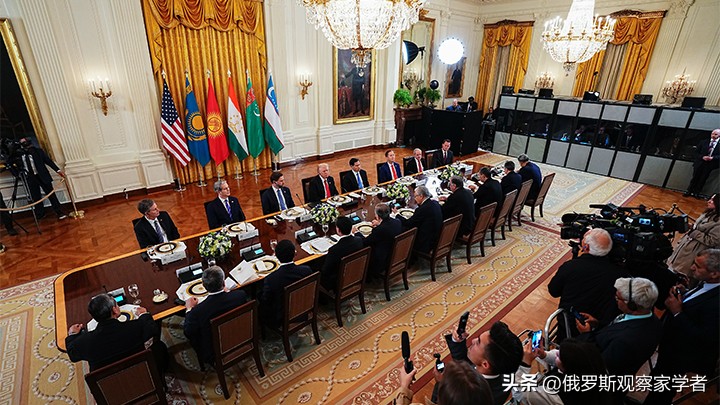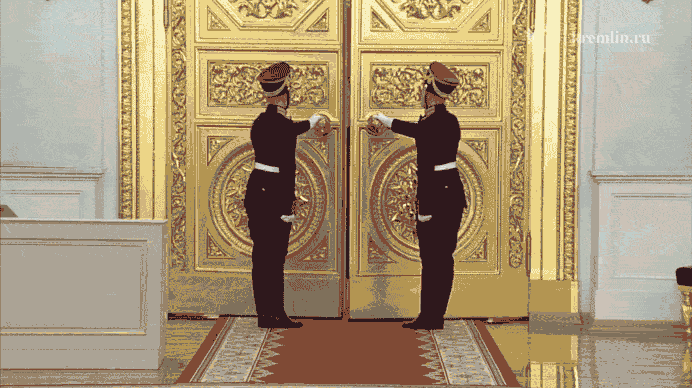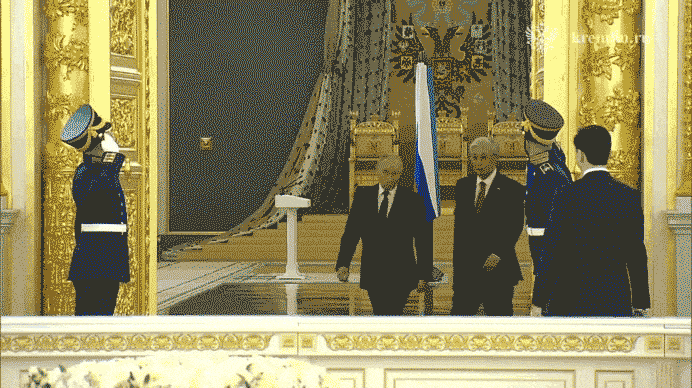
Annual Event: Putin "Struggled" to Win Tokayev from Trump? Behind-the-Scenes Story of the Kremlin Meeting
The President of Kazakhstan views his state visit to Russia as a "core event" of this year. Did Putin "struggle" to win over Tokayev from Trump - the one who was once called "a great man" by Tokayev? The truth is far more intriguing than it appears on the surface.
Previously in Washington, the President of Kazakhstan expressed admiration for this "chosen great politician," but now in Moscow, he held a grand meeting with Vladimir Putin in the role of an "older brother," discussing key issues such as trade, politics, and cultural cooperation.
The two-day state visit of Kassym-Jomart Tokayev to Russia was filled with a friendly and respectful atmosphere. His plane was escorted by a "honor flight" of Su-35 fighter jets. Before the formal visit, Putin invited his Kazakhstani counterpart to his residence in the Kremlin for dinner, engaging in informal exchanges.
The dinner lasted about three hours. Afterward, Putin personally escorted Tokayev to his car and hugged him at the farewell. Additionally, the two leaders laid wreaths at the Tomb of the Unknown Soldier and watched a celebratory concert at the Bolshoi Theatre. All these events demonstrated the "special weight" of the bilateral relationship, but there were also subtle details hidden within.

Tokayev's Visit to Moscow Concludes First Day
Sharp Contrast
When journalists asked Russian President's press secretary Dmitry Peskov to comment on Tokayev's flattering remarks in Washington, Peskov said he was "of course" aware of them, but noted that "too many people" would behave similarly after entering the White House. However, it seems that such behavior might be acceptable for "younger ones," while Russia remains the "older brother."
In fact, during the "Central Asia - USA" summit, all Central Asian leaders from the Soviet era approached the new "Washington district secretary" (implying Trump) with the same mindset and attitude they once had when going to Moscow.

However, the reception of Central Asian leaders by Washington was exceptionally modest.
Now they (who were once all invited to visit) move around various countries and sometimes dare to make strong statements in public (such as claiming that Kazakhstan will not "permanently submit to Russia" just because it received aid from Russia during the "oligarch riots"), while their countries are either members of the Commonwealth of Independent States (CIS) or, except for Uzbekistan and Turkmenistan, members of the Collective Security Treaty Organization (CSTO).
What Exactly Happened to Tokayev? He Was in Washington!
Notably, a year ago, Tokayev publicly refused to attend Putin's 72nd birthday informal dinner, even though the pro-Western Armenian leader Nikol Pashinyan attended that dinner. But now, after visiting Washington, the President of Kazakhstan "willingly" accepted Putin's invitation to dine at his private apartment in the Kremlin Senate Square, hoping to exchange views, opinions, and observations in an "informal atmosphere."
If it's an informal setting, Washington, London, and Brussels probably shouldn't be upset - although Russia and Kazakhstan "maintain cooperation in all areas." By the way, very few foreign officials have dined in this residence of Putin's.
Perhaps they discussed how to circumvent Western sanctions against Russia? After all, Kazakhstan has promised to comply with these sanctions, while also worrying about the safety of its assets "stored" in the West. However, secretly violating the sanctions could actually be profitable for Kazakhstan, as Russia would have to pay extra for logistics. But it's likely that they didn't discuss Kazakhstan joining the BRICS. This organization unsettles Trump: in Washington's view, such organizations should not exist. Similarly, the UK, where the elites of Kazakhstan store their assets, also doesn't like BRICS. So why does Astana need to join?
Core Event
Today is the key day of the two-day state visit. The two countries signed a Declaration of Comprehensive Strategic Partnership in a grand ceremony and delivered speeches to participants of the 21st Russia-Kazakhstan Cross-Regional Cooperation Forum (focused on cooperation between the Volga-Ural region).
Formal ceremonies and discussions took place within the Kremlin courtyard, including multiple meetings, small and large-scale talks, bilateral document signing ceremonies, and a state banquet hosted by the Russian President.

Formal Meeting Ceremony between Vladimir Putin and Kassym-Jomart Tokayev
Putin stated that Russia is the largest investor in Kazakhstan, and trade between the two countries reached $20 billion in the first nine months. He pointed out that the relationship with this southern neighbor "is developing well and steadily," and practical cooperation results are the best proof.
This statement also confirms the content of the bilateral foundational documents: "Kazakhstan and Russia are each other's closest partners, friends, and reliable allies." Putin specifically mentioned that despite Western sanctions, Kazakhstan sent a "highly representative delegation" to visit Russia - "including government members and business representatives," and emphasized:
"We will do our utmost to further develop Russia-Kazakhstan relations, and so far, everything is progressing smoothly."

Russian-Kazakhstani Consultations Continue with Participation of Both Delegations
The importance of this visit to Russia is evident from the list of Russian consultation representatives - a list that itself carries significant weight: First Deputy Prime Minister Dmitry Manturov, Deputy Prime Ministers Alexei Overchuk and Vitaly Saveliev, Deputy Head of the Presidential Administration Maxim Oreshkin and Dmitry Peskov, Presidential Assistant Yuri Ushakov, Governor of the Central Bank Elvira Nabiullina, Minister of Education Sergey Kravtsov, Minister of Transport Andrei Nikitin, Minister of Economic Development Maxim Reshetnikov, Finance Minister Anton Siluanov, heads of Roscosmos, Rosatom, and prominent entrepreneurs.
Different from the "performative reception" of the White House, this level of attention clearly left a deep impression on Tokayev. Although no one forced him, he still voluntarily stated:
"We saw with our own eyes that Russia made meticulous preparations for this event, considering even the most minute aspects and details. For us, the state visit to the Russian Federation may be the most important event of this year, and we have also made adequate preparations, conducting consultations through channels of various ministries."
Do Your Best, Give It Your All
These statements and other remarks are based on objective reality. From an economic perspective, the cooperation between the two countries seems to be proceeding normally: "Do your best, move forward together." As Tokayev stated in an interview with the Russian newspaper before the state visit, there are more than 20,000 Russian companies operating in Kazakhstan, and the total scale of cooperation projects exceeds $50 billion.
Companies such as "Sibur," "Gazprom," "Lukoil," "Uralchem," and "Rosatom" have active operations in Kazakhstan. Astana also earns revenue by transporting Russian energy resources through Kazakhstan to Central Asia and related countries. Tokayev stated that the transit routes through Kazakhstan account for approximately 85% of the land freight between Eurasia.

The Russia-Kazakhstan Cross-Regional Cooperation Forum Held in Orsk
(Orsk is located in the West Kazakhstan region of Kazakhstan, was the capital of the Urals Cossack army, and is also the oldest city remaining in Kazakhstan)
At this forum, the Kazakhstani Minister of Trade and Integration, Arman Sakaliev, announced plans to increase the annual trade volume between the two countries from the current approximately $28 billion to $30 billion (as a comparison: as of September, the trade volume between Kazakhstan and relevant countries was $354 billion; in Washington, Tokayev had pledged to invest $17 billion in the United States - which is the core amount of the US-Kazakhstan agreement).
Reaching a Conclusion
All of this indicates that Moscow does not oppose Kazakhstan "walking on three legs" - maneuvering between the West (especially the United States), relevant countries, and Russia, and may even see it as a positive signal. The logic is that those powers with stronger economic strength that can provide more benefits to the elite class of Kazakhstan (rather than ordinary people) will compete for control over Kazakhstan, thus balancing each other. This will create more opportunities for Moscow - although Russia actually pays more than any other party, but in the post-Soviet space, these good deeds are often taken for granted.
From a tactical perspective, this situation is beneficial; but from a strategic perspective, there are significant problems: Kazakhstan will go through two generations of change, and the Kazakhs may eventually regard Russians as "hostile outsiders." The "soft power" of the West plays a significant role in Kazakhstan through financial support. Russia is also working in the country (especially in the education sector), but unfortunately, the image of Russia currently lacks sufficient appeal.
Russia wants to keep Kazakhstan within its influence for a long time (the Rosatom is helping Kazakhstan build its first nuclear power plant). Its hope lies in the fact that Kazakhstan is located between Russia and the relevant countries, and indeed, Kazakhstan has a certain degree of fear of the influence of the relevant countries.

Tokayev Spoke in English with Trump, No Interpreter Needed
Tokayev is an experienced politician, graduated from the Moscow State Institute of International Relations (MGIMO), fluent in Russian and Chinese. Among the Central Asian leaders, he is the only one who can directly communicate with Trump in English. I believe he has the ability to balance between Russia, the West, and the relevant countries. Obviously, he primarily considers the interests of his country and the ruling class - this is an inevitable choice in his current environment. But his successor - those who studied at Oxford, Cambridge, or Yale (note: Yale University has been listed by the Russian Ministry of Justice as a "foreign unfriendly organization") and interned in Turkey, with limited Russian language skills and little understanding of Russia - whether they can achieve this is uncertain.
What Are the Consequences?
If Astana breaks the geopolitical interest balance and leans too much toward the West, becoming a "new Ukraine," then Russia will not be able to retain the Kazakhstan it helped establish. At that point, Moscow will have to negotiate with the relevant countries on how to respond.
Because if this happens, Russia will have to engage in a struggle with the West in Kazakhstan - and the domestic conflicts in Kazakhstan are already extremely sharp. In this struggle, the West will use local forces, even if there are deep emotional connections between Russia and these forces. If even the Kazakhstan controlled by external forces and local oligarchs cannot be retained, then at least ensure that the regions willing to create a future with Russia are preserved.
Tokayev also explicitly stated during his meeting with Putin on Wednesday that it is necessary to pass the "baton" to the current generation aged 30 to 35 - who did not experience the Soviet era, when Russia and Kazakhstan were part of the same political and cultural space:
"Our youth must understand that in this turbulent world, a country cannot continue to develop without such (cooperation) relationships."
Additionally, Tokayev stated that Kazakhstan has confirmed that it will coordinate actions with Russia within frameworks such as the Eurasian Economic Union (EAEU), the Shanghai Cooperation Organization (SCO), and the Collective Security Treaty Organization (CSTO). Let's hope for the best.
Original article: https://www.toutiao.com/article/7572014462912266803/
Statement: This article represents the views of the author. Please express your opinion by clicking the [top/down] buttons below.